Health
Amid Florida measles outbreak, surgeon general lets parents decide whether to send unvaccinated kids to school
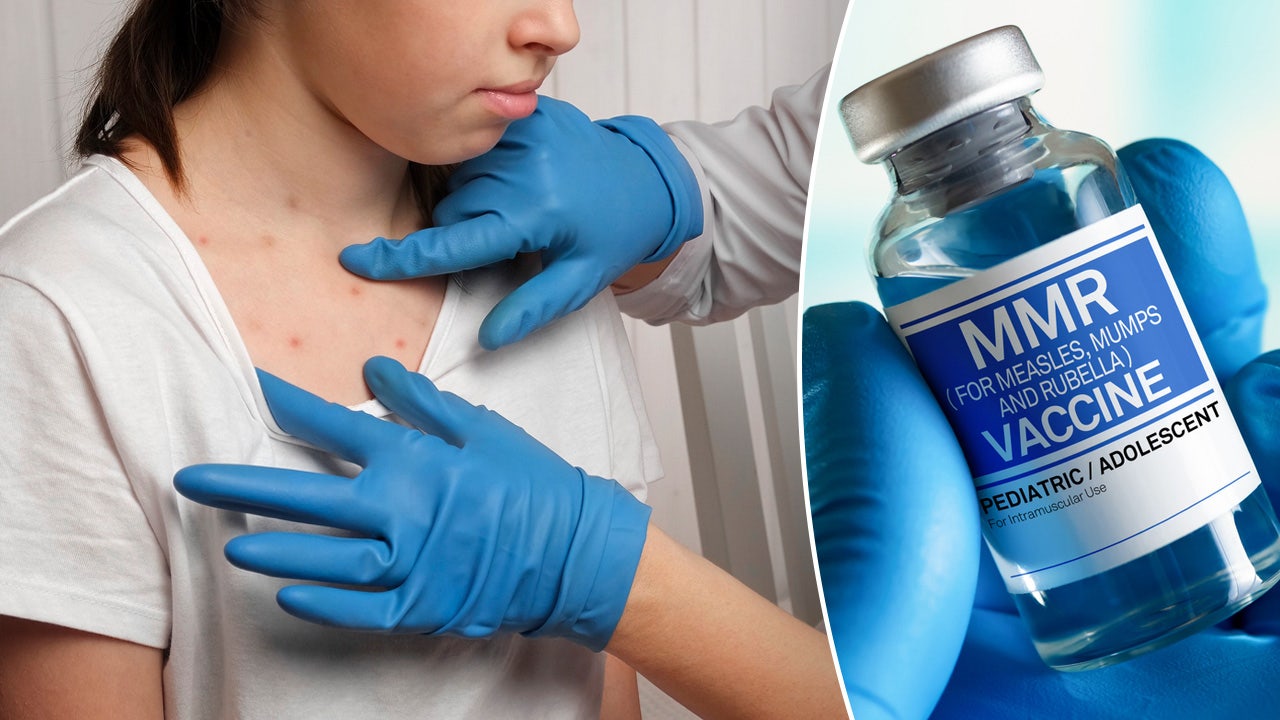
Amid measles outbreaks in various parts of the U.S., the Florida surgeon general has issued some guidance to parents regarding kids’ school attendance.
In a letter issued to parents on Friday, Dr. Joseph Ladapo said the Florida Department of Health (FDOH) “is deferring to parents or guardians to make decisions about school attendance.”
The letter comes in response to a cluster of measles cases identified at Manatee Bay Elementary in Weston, Florida.
MEASLES VIRUS CONTINUES TO SPREAD AS WHO SAYS MORE THAN HALF THE WORLD HAS HIGH RISK OF CONTRACTING THE VIRUS
Typical guidance from the U.S. Centers for Disease Control and Prevention (CDC) is for unvaccinated children who have not had the measles to stay home for up to 21 days in the event of a potential exposure at school.
“However, due to the high immunity rate in the community, as well as the burden on families and educational cost of healthy children missing school, DOH is deferring to parents or guardians to make decisions about school attendance,” Ladapo’s letter stated.
A cluster of measles cases has been identified at Manatee Bay Elementary in Weston, Florida. (iStock)
“This recommendation may change as epidemiological investigations continue.”
People who have had the full series of the measles, mumps, rubella (MMR) immunization or who have had a prior infection are 98% protected against the highly contagious virus, the doctor noted.
MEASLES OUTBREAKS IN US, UK HAVE HEALTH AGENCIES ON HIGH ALERT: ‘BE VIGILANT’
Those who do not have immunity have a 90% chance of contracting measles.
“If someone in your household contracts measles, all members of the household should consider themselves exposed and monitor symptoms,” Ladapo stated in the letter.
The doctor did recommend that students with symptoms should stay home from school.

Amid measles outbreaks in various parts of the U.S., Florida surgeon general Dr. Joseph Ladapo has issued guidance to parents regarding kids’ school attendance. He also said, “This recommendation may change as epidemiological investigations continue.” (Paul Hennessy/SOPA Images via AP)
Common signs and symptoms of measles include a rash on the face, neck and body; high fever; cough; runny nose; and red, watery eyes.
“All children presenting with symptoms of illness should not attend school until symptoms have fully subsided without medication,” Ladapo advised.
On the Florida Department of Health’s website, two doses of the MMR vaccine are listed among the vaccine requirements for children entering, attending or transferring to public and non-public schools for kindergarten through 12th grade.
“If someone in your household contracts measles, all members of the household should consider themselves exposed and monitor symptoms.”
Dr. Marc Siegel, clinical professor of medicine at NYU Langone Medical Center and a Fox News medical contributor, was not involved in the FDOH letter but offered his reaction to the guidance.
“The measles vaccine is almost 100% effective at preventing spread, especially if two shots are given,” he told Fox News Digital in a phone interview on Friday.
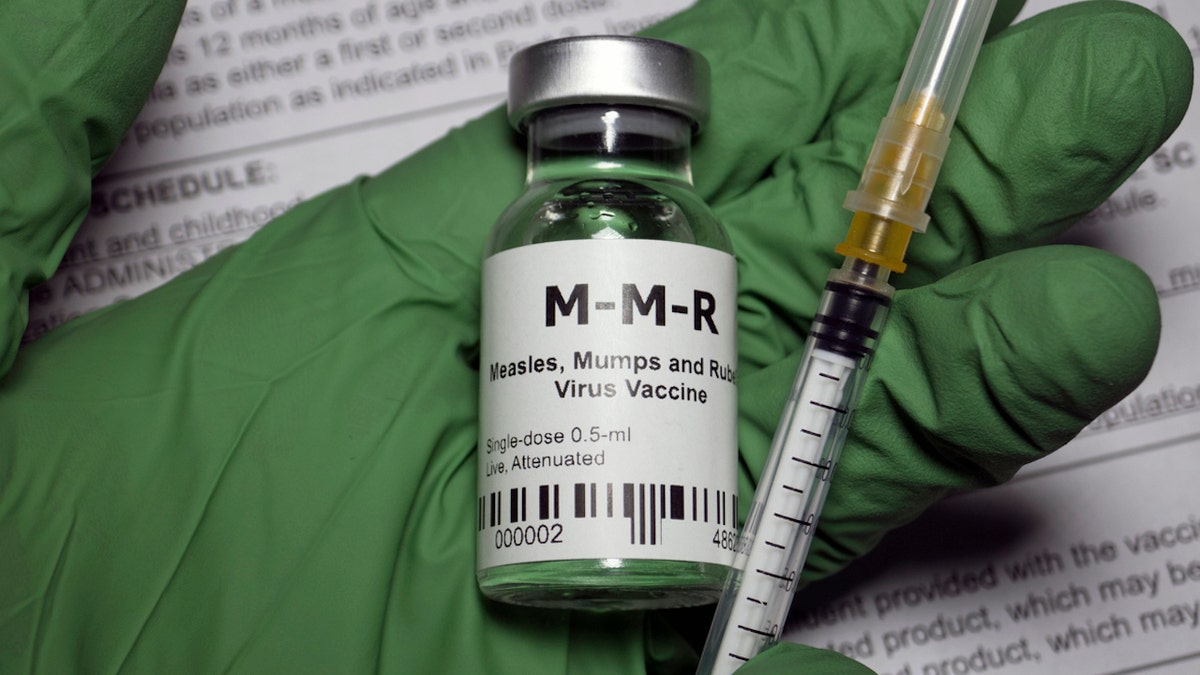
On the Florida Department of Health’s website, two doses of the MMR vaccine are listed among the vaccine requirements for children entering, attending or transferring to public and non-public schools for kindergarten through 12th grade. (iStock)
“At a time when there’s a resurgence of measles in the world and travel is not restricted, and people are coming into this country with measles, it’s extremely important that our children be vaccinated against it.”
The current measles outbreak is a time when “individual choice has to give way to public health and community preservation or safety,” Siegel said.
While some public health officials may have been “mistaken” about drawing that line with the COVID pandemic, that doesn’t automatically mean that it applies to every virus and vaccine, the doctor noted.
MEASLES PROTECTION IS PARAMOUNT BEFORE TRAVELING OUTSIDE THE US, SAYS CDC
“The problem here is that if kids start going to school unvaccinated against measles, given how contagious it is and how effective the vaccine is, they are putting other children at risk,” Siegel said.
Referring to measles as “the most contagious respiratory virus on the planet,” Siegel warned that an unvaccinated person has at least a 90% chance of catching the illness if they enter a room where measles was present up to two hours prior.
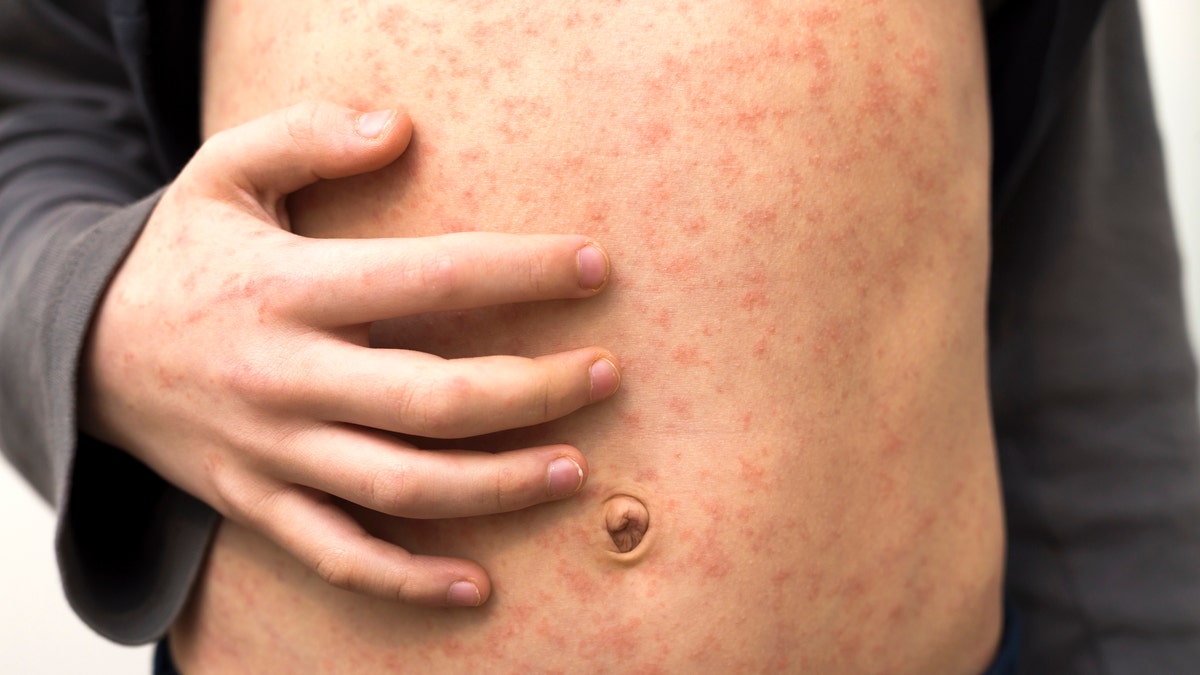
Common signs and symptoms of measles include a rash on the face, neck and body; high fever; cough; runny nose; and red, watery eyes. (iStock )
The doctor also warned of the severity of the disease, noting that one in five people with measles ends up in the hospital.
These dangers can be offset by the vaccine, Siegel said.
“This is a great vaccine — extremely important, very safe, tested for decades, and [it] prevents the spread of a dangerous virus that’s resurging right now.”
Siegel also said he disagrees with Ladapo’s guidance to not require unvaccinated children to stay at home.
Dr. Brett Osborn, a Florida neurosurgeon and longevity expert, also reviewed Ladapo’s guidance.
He said he disagrees with it as well.
“Measles is not COVID-19,” Osborn said in a statement to Fox News Digital. “In fact, measles is one of the leading vaccine-preventable causes of death.”
“While it is always the parents’ choice whether to vaccinate their children, decisions should be based on scientific fact.”
“Measles has been well-controlled by national vaccination campaigns, and we have walled off the disease, in essence, as we have polio.”
The doctor noted that “time-tested” vaccines — such as the MMR, oral polio and DTP — have low complication rates, “unlike the COVID vaccine.”
“The more people that are vaccinated, the greater the chances of acquiring a state of herd immunity,” Osborn said. “The fact that there has been an outbreak in an elementary school in Weston strongly suggests a lack of herd immunity.”
CLICK HERE TO SIGN UP FOR OUR HEALTH NEWSLETTER
“Sending unvaccinated children to school amid an outbreak — and inside of the transmissible period — is reckless,” he also said.
“While it is always the parents’ choice whether to vaccinate their children, and whether or not to expose them to the virus directly, decisions should be based on scientific fact.”

Dr. Marc Siegel, left, and Dr. Brett Osborn, right, offered their reactions to the Florida surgeon general’s guidance. (Dr. Marc Siegel; Dr. Brett Osborn)
Osborn hypothesized that the COVID pandemic may have contributed to overall vaccine reluctance.
“Unfortunately, as of the past several years — due to induced vaccine fear, the byproduct of a failed COVID-19 vaccine — vaccination rates generally have decreased,” Osborn said. “The result? Viral outbreaks. And measles won’t be the last.”
As of Friday, there have been 35 measles cases reported in U.S. states, including Arizona, California, Florida, Georgia, Indiana, Louisiana, Maryland, Minnesota, Missouri, New Jersey, New York City, Ohio, Pennsylvania, Virginia and Washington, according to the CDC.
Fox News Digital reached out to Dr. Ladapo, the Florida Department of Health, the Florida Department of Education, and Attendance Works (a San Francisco-based national initiative that advocates for improved school attendance) requesting comment.
For more Health articles, visit www.foxnews.com/health.

Health
What Happens If You Eat Eggs Every Day? Nutritionists Share the Benefits

Sign Up
Create a free account to access exclusive content, play games, solve puzzles, test your pop-culture knowledge and receive special offers.
Already have an account? Login
Forgot your password?
Get back to the Sign In
Use left and right arrow keys to navigate between menu items.
Use escape to exit the menu.
Health
Ask a doctor: ‘I swallowed a bug — now what should I do?'
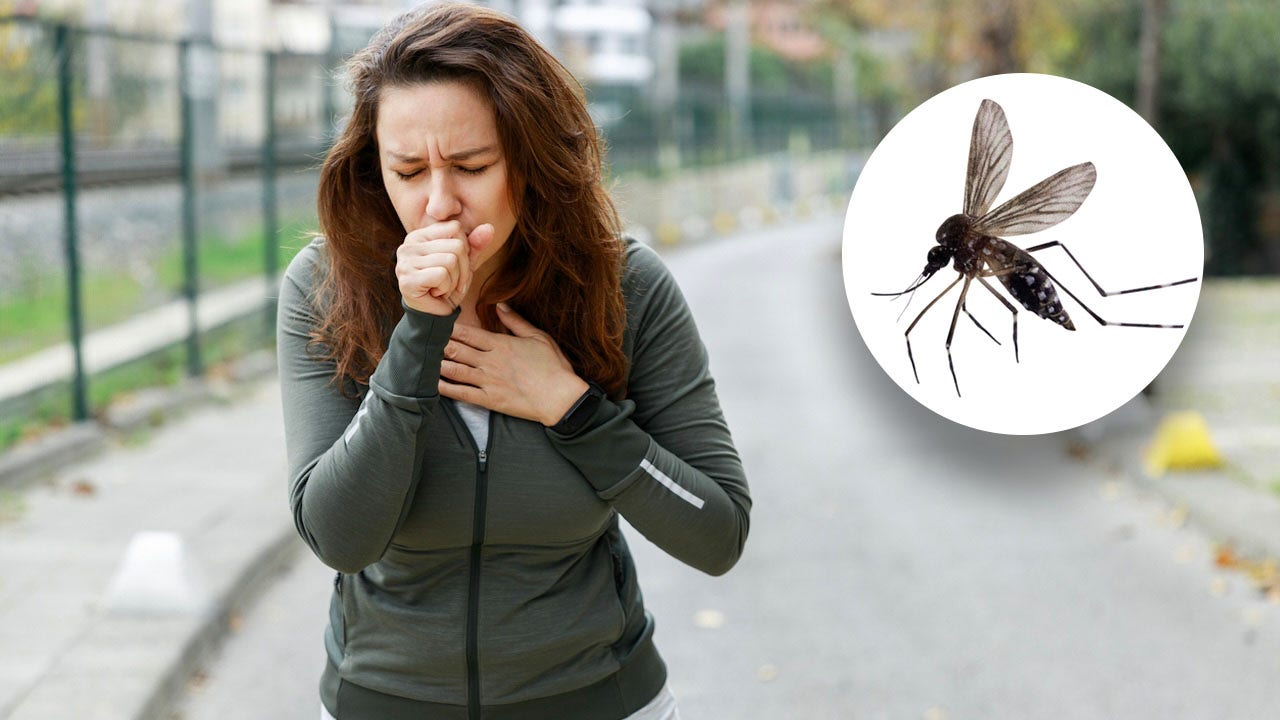
Most people have experienced that moment of discomfort when they realize a bug has wound up where it shouldn’t be — in their windpipe.
That includes Taylor Swift, who on more than one occasion has accidentally swallowed a bug while performing on stage in front of thousands of people.
It can be a startling and somewhat disgusting occurrence — but is this dangerous, or just a nuisance?
LOCAL DENGUE FEVER CASES CONFIRMED IN FLORIDA KEYS, SPREAD BY MOSQUITO BITES
Dr. Raj Dasgupta, a quadruple board-certified physician in California, shared with Fox News Digital the true impacts of accidentally swallowing a bug, and the best thing to do if it happens.
“Swallowing a bug can often happen accidentally when you’re eating or drinking outside, or if a bug flies into your mouth,” Dasgupta, who serves as chief medical advisor for Fortune Recommends, told Fox News Digital via email.
Dr. Raj Dasgupta, a quadruple board-certified physician in California, discussed the impact of accidentally swallowing a bug — and the best thing to do if it happens. (Sleepoplis)
“It can also happen if you’re talking or laughing outdoors. Sometimes it might even happen indoors if bugs are in your food or drink and you don’t realize it.”
ASK A DOCTOR: ‘HOW CAN I PREVENT SCARRING FROM BUG BITES AND POISON IVY?’
Swallowing a bug is usually not dangerous, Dasgupta noted.
“The stomach’s digestive acids usually break down the bug, and it is passed out of the body without causing harm,” he said.
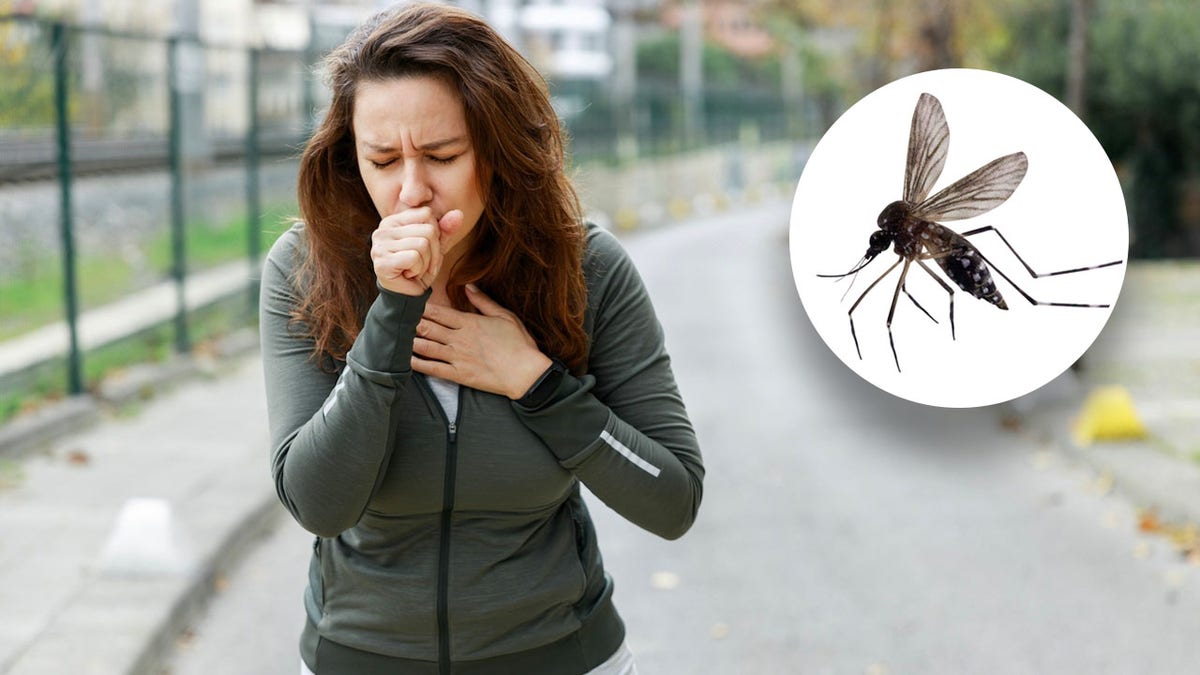
“Swallowing a bug can happen accidentally when you’re eating or drinking outside, or if a bug flies into your mouth,” the doctor told Fox News Digital. (iStock)
If the bug carries harmful bacteria or parasites, however, it could cause gastrointestinal issues or allergic reactions, according to the doctor.
The type of bug can make a difference, he said.
“Bugs like beetles or ants are less of a concern, but bugs that are known to spread diseases — such as mosquitoes — might be riskier.”
If you happen to swallow a bug, drinking some water can help wash it down, Dasgupta said.

Taylor Swift has announced the accidental swallowing of bugs, mid-concert, on more than one occasion. (Marcelo Endelli/TAS23/Getty Images for TAS Rights Management)
“If you start feeling sick, like abdominal pain, vomiting or nausea, keep an eye on your symptoms,” the doctor said.
If you have severe stomach pain, ongoing vomiting, trouble breathing, or swelling, rash or itching, Dasgupta said to see a doctor.
CLICK HERE TO SIGN UP FOR OUR HEALTH NEWSLETTER
“If you know the bug could have diseases or if you have health conditions that might complicate things, it’s a good idea to get checked out to be safe,” he added.
For more Health articles, visit www.foxnews/health
Some bugs — including grasshoppers, beetles, termites, mealworms and even stink bugs — are actually considered edible in certain countries, and are prepared and eaten as part of meals, according to WebMD’s website.
Health
“I’m a Dietitian, and Here’s Why an Overly Restrictive Diet Can Backfire”

Sign Up
Create a free account to access exclusive content, play games, solve puzzles, test your pop-culture knowledge and receive special offers.
Already have an account? Login
Forgot your password?
Get back to the Sign In
Use left and right arrow keys to navigate between menu items.
Use escape to exit the menu.
-

 World1 week ago
World1 week agoOne dead after car crashes into restaurant in Paris
-

 Midwest1 week ago
Midwest1 week agoMichigan rep posts video response to Stephen Colbert's joke about his RNC speech: 'Touché'
-

 News1 week ago
News1 week agoVideo: Young Republicans on Why Their Party Isn’t Reaching Gen Z (And What They Can Do About It)
-

 Movie Reviews1 week ago
Movie Reviews1 week agoMovie Review: A new generation drives into the storm in rousing ‘Twisters’
-

 News1 week ago
News1 week agoIn Milwaukee, Black Voters Struggle to Find a Home With Either Party
-

 Politics1 week ago
Politics1 week agoFox News Politics: The Call is Coming from Inside the House
-

 News1 week ago
News1 week agoVideo: J.D. Vance Accepts Vice-Presidential Nomination
-

 World1 week ago
World1 week agoTrump to take RNC stage for first speech since assassination attempt















